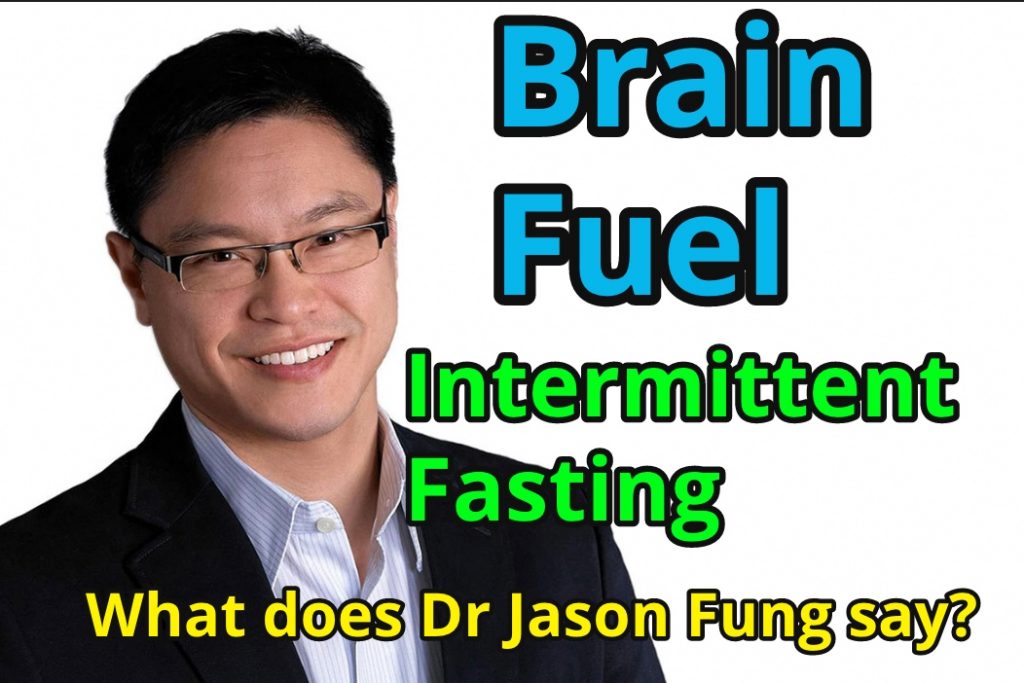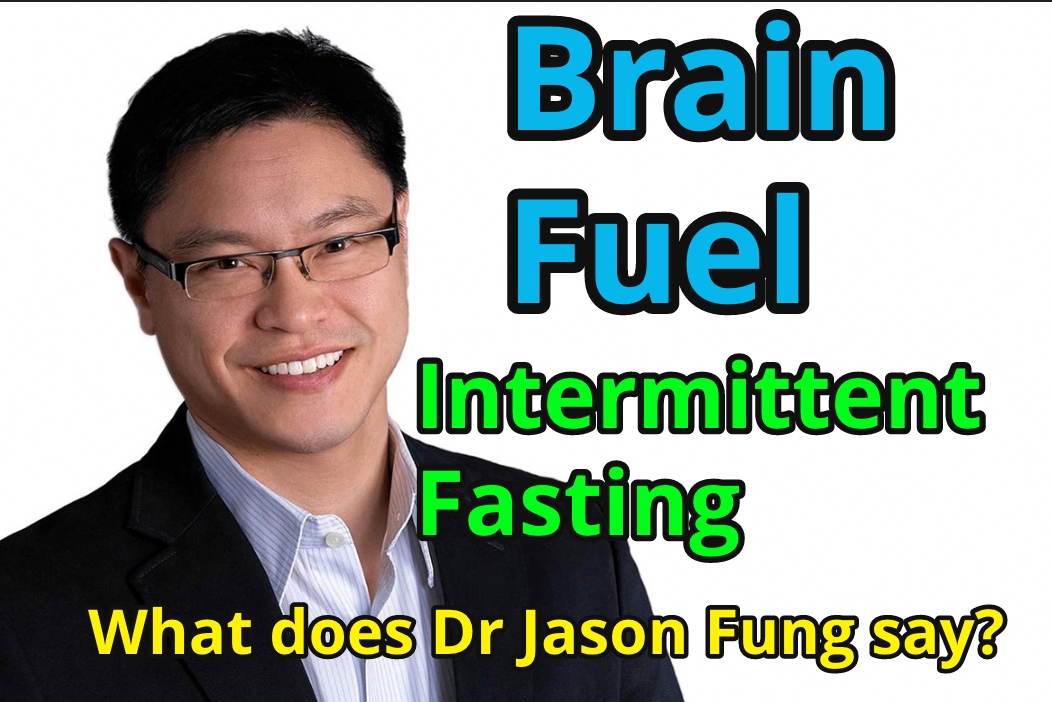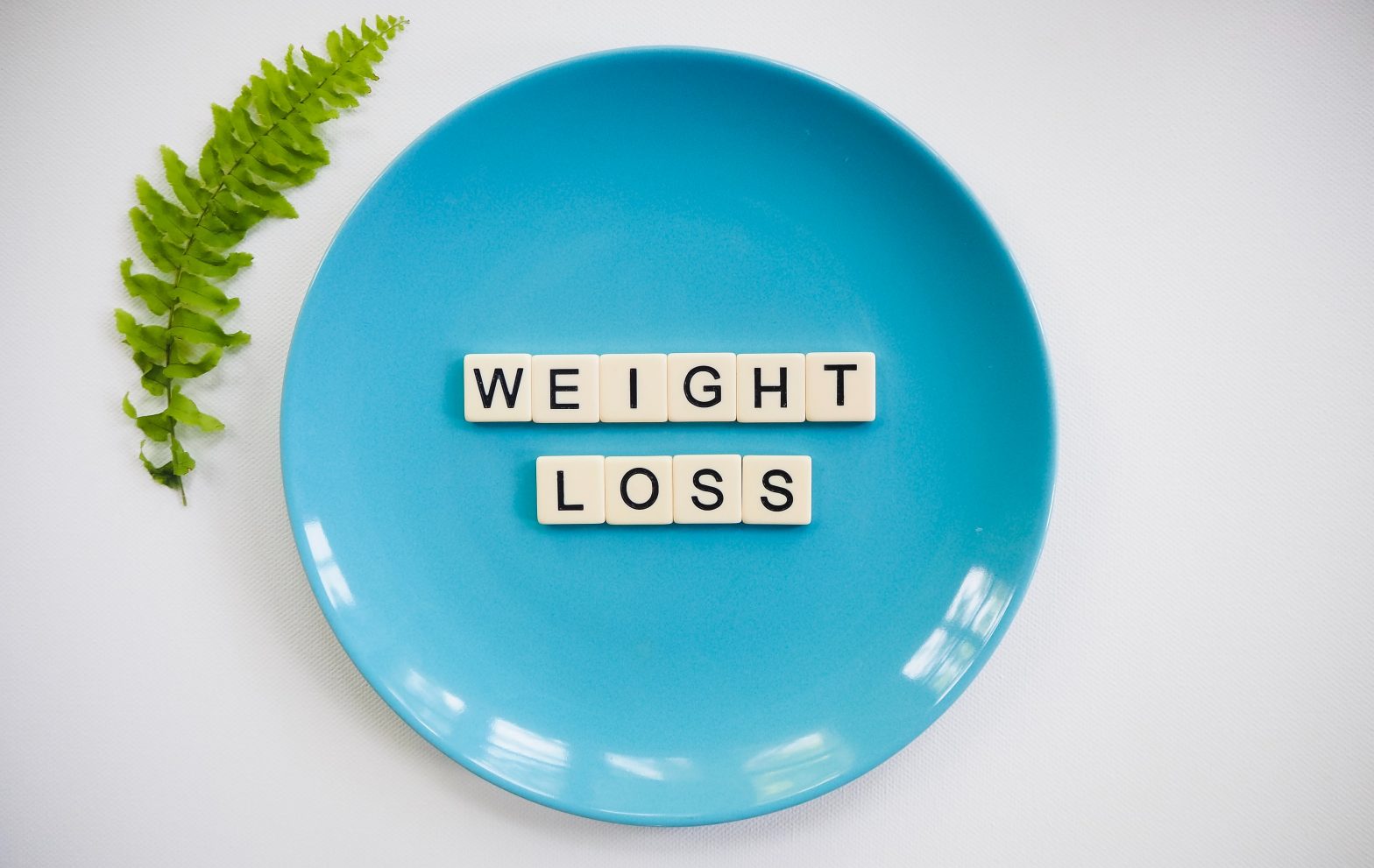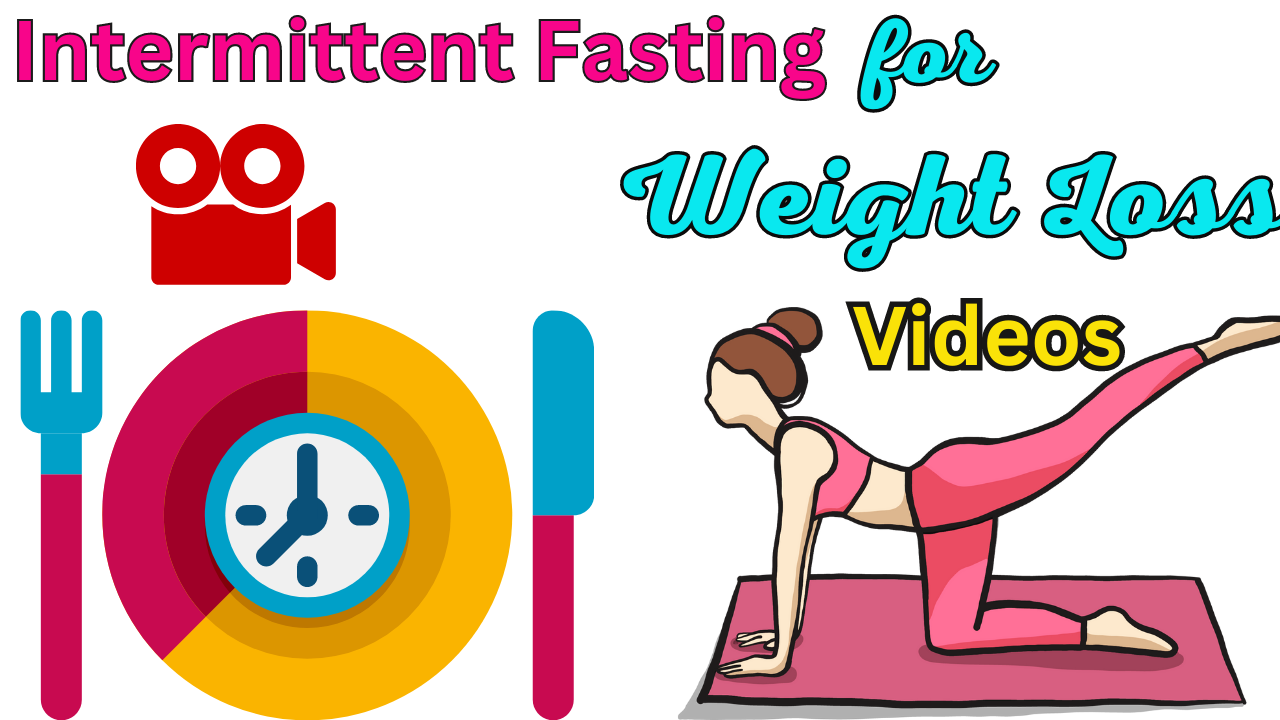
Part 2
And guess what? It actually turns out to be true. But there’s a lot that goes into it. So making it socially acceptable, because one of the big mistakes that people do when they fast, like they tell their doctor, they tell the dietitian or they tell their friend and the friend, who doesn’t know, but is trying to be helpful, “Oh, you can’t do that. You should never do that.” It’s like, well, what, you have a three hundred pound person with the most severe type two diabetes and you think they can’t miss a single meal.
What do you think’s going to happen? It’s interesting because when I talk to doctors and I do give a number of lectures, doctors almost immediately understand that there is nothing wrong with fasting. That is, we tell people to fast all the time. When you go for colonoscopy you fast. When you go for surgery, you have to fast. When you have the blood work, you have to fast. And we all know that as doctors, when we were doing a medical residency, medical school, we fasted all the time because we were just so busy that you didn’t have time to eat and you just work right through it.
That was just the way life was. And if you’re busy with work, that’s it. It’s not like you’re going to die or something. And if you look around the animal kingdom, for example, or you see bears that are going six months hibernating, so no food. You see lions that eat once a month and snakes that eat once a month. So you know what? Guess what? That’s the reason our body stores fat. It’s for us to use when there’s no food to eat. If you are always eating, why would your body burn off that fat? That’s its stored energy. So it’s going to hold on to it. What you have to do is give your body the time to try to burn off that fat, that is making us sick. So doctors almost immediately understand that there’s actually nothing intrinsically wrong. But you do have to use some common sense. That is, not everybody should fast. Pregnant women shouldn’t fast Children should not fast. And if you’re malnourished you shouldn’t fast., If you’re on medications, you need to get some medical advice as to what to do with those medications, especially for diabetes medicines if you fast and take the same dose of medication, you put yourself at real risk. But getting back to the question of what we need to do, we have to make it socially acceptable. We have to put in the support structures that the doctors aren’t there to support patients. We have support groups for that. And this is one of the things that I sort of learnt from trial and error over these last 4 -5 years or so. In the last four or five years, we developed this program called the Intensive Dietary Management Program, the website, IDM program, dot com.
And what we do is try and provide that support. We give a counsellor who is able to help people with fasting because there’s not a lot of knowledge about that. We can help them with problems that come up during fasting because again, it’s not fun and it’s not easy to stick to. And we provide. We do small group sessions because that peer support is actually very important .In school, of course, we talk about peer pressure. That is, even if the teacher tells you to do one thing, you may not do it if all your friends are doing something else. So it’s very important to get the support of your peers to do something, and we want to harness that for the good. So we put people in small groups and they’re all trying to do the same thing. They’re all trying to lose weight. They’re all trying to reverse their type two diabetes. So there’s great support in that. And groups like ‘Weight Watchers’, groups like ‘Alcoholics Anonymous’ have figured that out a long time ago. It took me a while to figure out, but eventually I realised that small groups are actually one of the real keys to successfully treat these patients.
So you have to have the counsellor who knows how to help people, like headaches come up with constipation, diarrhoea. You have to have somebody who’s done it, who knows what they’re doing. You have to have the peer support and you have to have the medical support from your physician. And that’s the sort of program that we’ve tried to put together, in this IDM program. And over the last few years, it’s been really very rewarding because it’s it’s incredible to talk to people.
And this morning I had a group of four people and all four of them had virtually reversed their type two diabetes. One was on like 45 of insulin, one was on 180, one was on 95 units of insulin, and all had basically become pre-diabetic on that thing. And it’s really incredible to talk to them because it’s the reason that we all went into medicine. We didn’t go into medicine to prescribe pills and watch people go on dialysis and get their feet chopped off.
We went into medicine because we wanted to make people better. In here, I see people in front of me who had reversed their type two diabetes, something that their own doctors had told them wasn’t possible. And it’s like, wow, that really makes me feel good and it makes them feel good. So it’s great. It’s a win-win situation. The government saves money because it’s not paying for all these drugs. It’s not paying for all these heart attacks and strokes and kidney failure.
They don’t want it anyway. And hey, everything just comes down to applying the right knowledge. I’m not talking about building great surgical centers. I’m just talking about spreading knowledge to the people who need it and then putting in the supports for them to actually do well. So we have a fasting support group, but there are ones online that you can join for free. You can read the books. They’re very inexpensive. You can read the blog for free.
You can go on to great websites like “dietdoctor.com”, which has great recipes. There’s a UK website which has a free low carb program called “diabetes.co.uk“, and of course, stuff like Youtube feed, which is promoting healthy diets for people to reverse their disease. And it’s like this is amazing that we can do this for people without building brick hospitals and incurring huge expenses and so on. It really, kind of, reinvigorated my sort of passion for medicine.
The first question was about this sort of myth that’s been around and you hear it from even the authority figures like dieticians and doctors that the brain needs 130 grams of glucose in order to function properly. And the idea is that you need to eat 130 grams of glucose to function properly. And those are two completely different things. That is, if you need 130 grams of glucose for your brain to function, you’ve got it stored in your liver. It’s called glycogen.
Glycogen is the stored form of sugar. The body takes the glucose that you eat from lunch. It stacks them all together and puts it in the liver in the form of glycogen. So in plants they use starch. So potatoes are from starch. But if you look at what starch actually is, it’s a big, long chains of glucose. So the same thing happens with liver. The animals now don’t use starch, which is animal leptin. We use glycogen. So it gets stored in the liver.
So, if you don’t eat for 24 hours, your body simply takes that stored sugar and breaks it down. After that, what happens is that the body starts to burn fat and it still needs a little bit of glucose. But what it does is that it creates new glucose in a process called “gluconeogenesis”. So ‘gluco’ means glucose, ‘neo’ means new and ‘genesis’ is to make. So gluconeogenesis is making new sugar from those fat. So you can take the glycerol backbone. You take off the fatty acids, your body burns the fat, you take the glycerol, you change it into glucose and you send it up to the brain.
Your body also produces ketone bodies, which is from the fat. And that is because the fat cannot cross the blood brain barrier and your brain can’t use the fat. Your muscles, for example, can burn fat directly, as can your liver, as in most of the other tissues of your body. The only parts of your body that need to still have some glucose is the brain and certain small parts like the red blood cells. So what your body does is it takes the fat, produces ketone bodies, which will now supply up to 75% of the brain’s energy needs and the rest of the glucose, that you need, for the brain to function derived from the fat from gluconeogenesis and some protein breakdown.
So that’s how your body survives when you’re fat. And again, this is completely normal. We have people who have fasted for a week or two weeks at a time and we have like 75 year olds who do this and they feel completely normal. In fact, one of the very interesting things is that the brain seems to work better in the fasted state. That is, there’s a lot of research that shows that when you fast people and then do things like memory tests, their memory is better.
There’s maybe prevention of Alzheimer’s disease. They seem to function better using those ketones as opposed to just straight glucose. So while it’s possibly true that your brain needs 130 grams of carbohydrates to function. It’s not the same as you must eat 130 grams carbohydrate because, for example, we will have people who will turn out to fast for 24 – 48 hours to do a colonoscopy. Remember, colonoscopy is a routine procedure now. It’s done in everybody over the age of 55. So people are fasting for 24 hours. None of them turn into stark raving lunatics because the brain doesn’t have enough glucose. They would be a little hungry but otherwise completely normal. So there is this entire myth that has gone around saying you must eat 130 grams of carbohydrates each and every day. Otherwise, you’re going to die! No, that’s not the case. Your body has a storage form of energy, that glycogen, and it will use that.
That’s just like saying, “Oh, well, you spend fifty dollars every day. So you must go out and earn fifty dollars every day.” And one day on a weekend you decide to take it off or you can die. You store money to use when you’re not working. Your body stores food energy for when you’re not eating. That’s the only reason we’re all still here. Otherwise this would be like Planet of the Apes or something. It’s ridiculous.
Type one diabetes is a completely different disease. And one of the important things that we recognise in the last little while, is that a lot of older people also develop type one diabetes. So sometimes people call it late onset type one diabetes. So in the old days, it was always in children. So you’d see these 10 year old children and they would have diabetes. And it’s all type one diabetes. Now you can see type one diabetes in a 65 year old person and it’s not all that unusual anymore.
And why it’s increasing in prevalence? The difference with type one diabetes is they’re essentially as opposites. One has too much insulin, which is type two diabetes. Type one diabetes is too little, and that is, there is an autoimmune destruction. Your body’s own immune system, for some reason, destroys the pancreatic cells that produce insulin. So there’s really just no evidence that glucose cannot go into the cells. And what happens is that because it can’t get into the cells, you pee it out and people just start to lose weight like crazy.
So this 10 year old children, they would be skeletally thin. You never see pictures of an untreated type one diabetes. They were skin and bones. And then they would die because the insulin would not let them use any of that energy. So when you give them, it’s fine. The problem is with type one diabetes and if you take too much insulin, then you run into problems over many decades of too much insulin. So if you have too much insulin, you gain weight and you develop insulin resistance.
So what you see clinically is that type one diabetes, after 15 – 20 years, they start to gain weight and their insulin dosage starts to go up. Instead of using 15 minutes a day, they start using 20 to 30, 40, 50. So their bodies are becoming insulin resistant and, again, insulin resistance is caused because of too much insulin. You’re stuffing too much sugar into those cells. So the point is that there’s two main problems. One is type one diabetes. If you have very high blood glucose, that’s problem.
And two, over the long term, having too much insulin is also a problem. So the way to manage that, you want to minimise the blood sugars and you want to minimise its dosage. And the best way to do that is to use a low carbohydrate diet. And that is if you don’t take low carbohydrate, you don’t put a lot of demand on your body to have more insulin. That is, if you think about a cookie versus an egg, if you eat that cookie, your blood glucose goes up, you need insulin to cover that.
If you eat that egg, same calories, your blood glucose did not go up and you don’t need insulin to cover that up. So you can get the same nutrition, you can get the same calories, but one will require a lot of insulin and one will require very little. So if you eat more fatty foods, natural fats, low carbohydrate, you’re not going to put the requirement on body to make insulin and therefore you can minimise the insulin dosage and, over the long term, have less weight gain, have less insulin resistance, which causes all the other problems, heart attacks, strokes and so on. But, yes, type one diabetes is actually, a sort of, untreatable kind of disease. You can manage it, you don’t want to go overboard on getting treated and otherwise eventually the problem is too much insulin. The problem with calories is that the body has no way of measuring calories. So it doesn’t matter if you eat a cookie, say 100 calories versus 100 calories of a kale salad. It’s the same number of calories and body has no way of knowing. The way the body works is that it responds to hormones. Hormones are chemical messengers that tell the body what to do.
So the question is not as a calorie, of course, a calorie is a calorie. The question is, are all calories equally fattening? That’s the real question. And it’s not at all clear that the answer is they are. In fact, it’s all very different. As soon as you put that cookie in your mouth, hormonal response of your body is completely different than eating that kale salad. Same calories – completely different hormonal response. That is, you eat the cookie and then insulin goes up. Way up! You eat that egg and kale salad, insulin doesn’t really go up very much. You don’t starve as much. If you don’t starve your body, then it burns. So it’s not that there’s this, sort of, magical calorie counter in the body that counts all your calories, tally’s it up at the end of the day and sort of rings a bell. It’s really the body relies on hormone signals. So what you have to understand is that obesity is not a caloric imbalance. It’s a hormonal imbalance. Know, the main hormone is insulin, but there are others, cortisol, for example.
And if you understand that the problem with obesity is that insulin is too hot and the answer is simple – lower insulin. And the question is how do you lower your insulin? Low carbohydrate diets and you do fasting. That’s how you lower the insulin. If you thought that obesity is because of too many calories, then the answer is just cut the calories. And that’s what we’ve tried that and it hasn’t worked. As I mentioned, the failure rate is like 95% . And one of the things that’s really super unfair to me is that we keep blaming the victims for their obesity.
That is, we give them a diet that has a 99% failure rate. Then when they fail, we turn around and we blame them. “Oh, you didn’t have enough willpower.” “Oh, you just didn’t follow our advice.” “Oh, you let yourself go.” That’s so unfair. These are the victims. Yet we’re trying to put the blame on them because the sort of nutrition authorities, all these kind of academic doctors and researchers can’t admit that their advice is not good.
So they have to blame the patients. They can shift that blame onto the patients. And the patients actually believe that they are the ones at fault. And that is really unfair thing that we’ve done to people. And of course, people just give up because they thought, well, it doesn’t work, so I’m not going to do it. So, you know, it’s very empowering to people to really understand the obesity, take control of type two diabetes and be able to do something about it. If it’s too much insulin then lower the insulin or if it’s about too much sugar then lower the sugar in the body. Don’t make it more complicated than it already is.
It’s crazy that we would have these people that say, “Oh, you have to eat breakfast!”, like you can eat breakfast even if you’re not hungry. “Oh, just shove a muffin at your mouth.” How is that going to make your obesity or type two diabetes better? Can somebody please answer that question for me, because I am mystified at how shoving a muffin in your mouth is going to make you more healthy than if you just say, “Oh, I’ll just have some tea and wait till lunchtime.” It doesn’t make any sense to me. Unfortunately, that seems to be a lot of nutritional science.
What is it that I’m going to do to leave this world a better place? Because that’s passion. I mean, really, passion is the key and it really is something that you get as you get older. My younger days, of course, you’re worried about what you’re going to do, your career, how you’re going to make money, who you’re going to marry and all of that. But once you hit, kind of, the middle age then you start to think, “Well, I’m not going to live forever. How am I going to make this world a better place? How are people going to remember me? What’s going to be my legacy?” and really that sort of an overwhelming sort of passion in life, and it really is what gives life meaning because it’s not enough to make a good living and have a roof over your head. I mean, those are all important things to happen. But if you do have them, then what you want to do is pay it forward to give it back.
To me, that passion is, really, what is sustaining me. I do this not because it makes me money, but it’s really the passion that’s really important. What are you going to do to help people, to pay it forward to make life better for everybody else around you? I don’t have two diabetes. I don’t have to worry about it. But I see other people. I see lots of people. And I want them to think, wow, I want to be able to share that knowledge and be able to make them better and healthier and happier.
And that’s really what is important.The passion, your mission in life, what it is that you do. I think that really is to me, one of the most important things that’s driving. And it really is one of the most fulfilling things that you can do; is to do it for somebody else. And you realise that sometimes when you have children, that is when you’re a child, you enjoy a lot of things like Christmas. After a while, you can buy everything that you need and Christmas isn’t as exciting.
But then when you have a child, that excitement just kind of explodes again because you see the happiness.You see it and you’re able to give it to somebody else. It’s an amazing feeling and it’s the same thing that I want to be able to do. So I think passion is really the most important thing, I would say. Find your passion and do it, whether it is making the world a better place or whether it’s helping people do it, because it is just the most thrilling thing.
As you said, when people come back and email me or tell me all “Wow! It’s amazing that I have found you online. I was able to get better.” Great! I haven’t profited in any sort of financial way. But in a spiritual way, I’m so much richer for that entire experience. And that’s what drives all of us. Really, all of us in this community is this, sort of, shared passion, shared dream of something that just means we’re all in this, sort of, world together and we should do what we can to make each other better.
You know, the food that you eat and sleep and all of those things are very important as well. And our community is probably one of the least understood forces of wellness, but it’s actually one of the most important to look at. Blue zones, for example, why people in these blue zones are so much healthier? Not necessarily the food or the exercise, whenever, it’s actually the sense of belonging and sense of community that they have. And that’s something that’s very under-appreciated by sort of Western medicine, which is sort of a blood work-driven, sort of X-ray driven, sort of, specialty. If you can’t quantify it, it’s not important. But the sense of belonging, a sense of community that goes along, you find it when you find your passion in life and what you want to do.
.







Leave a Reply